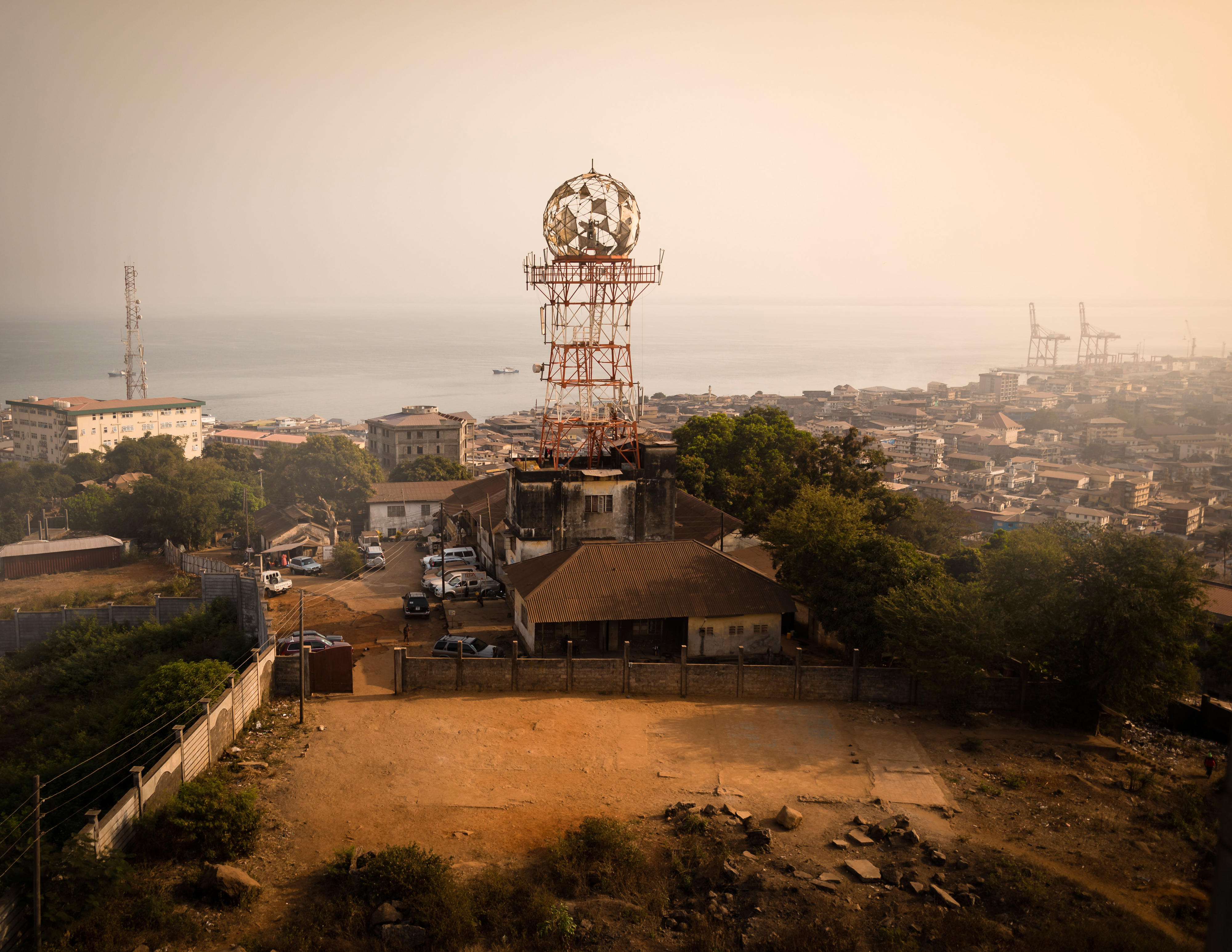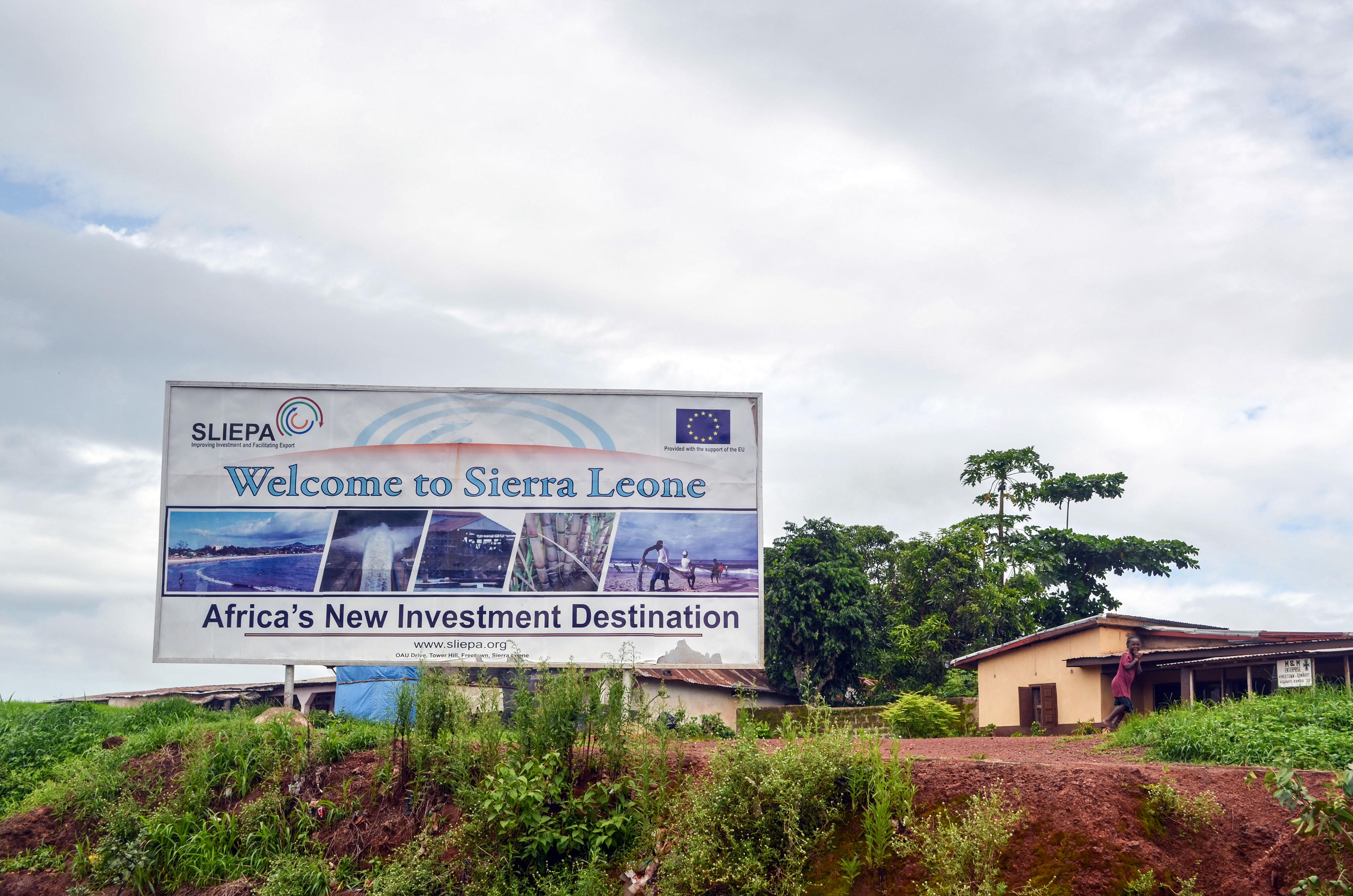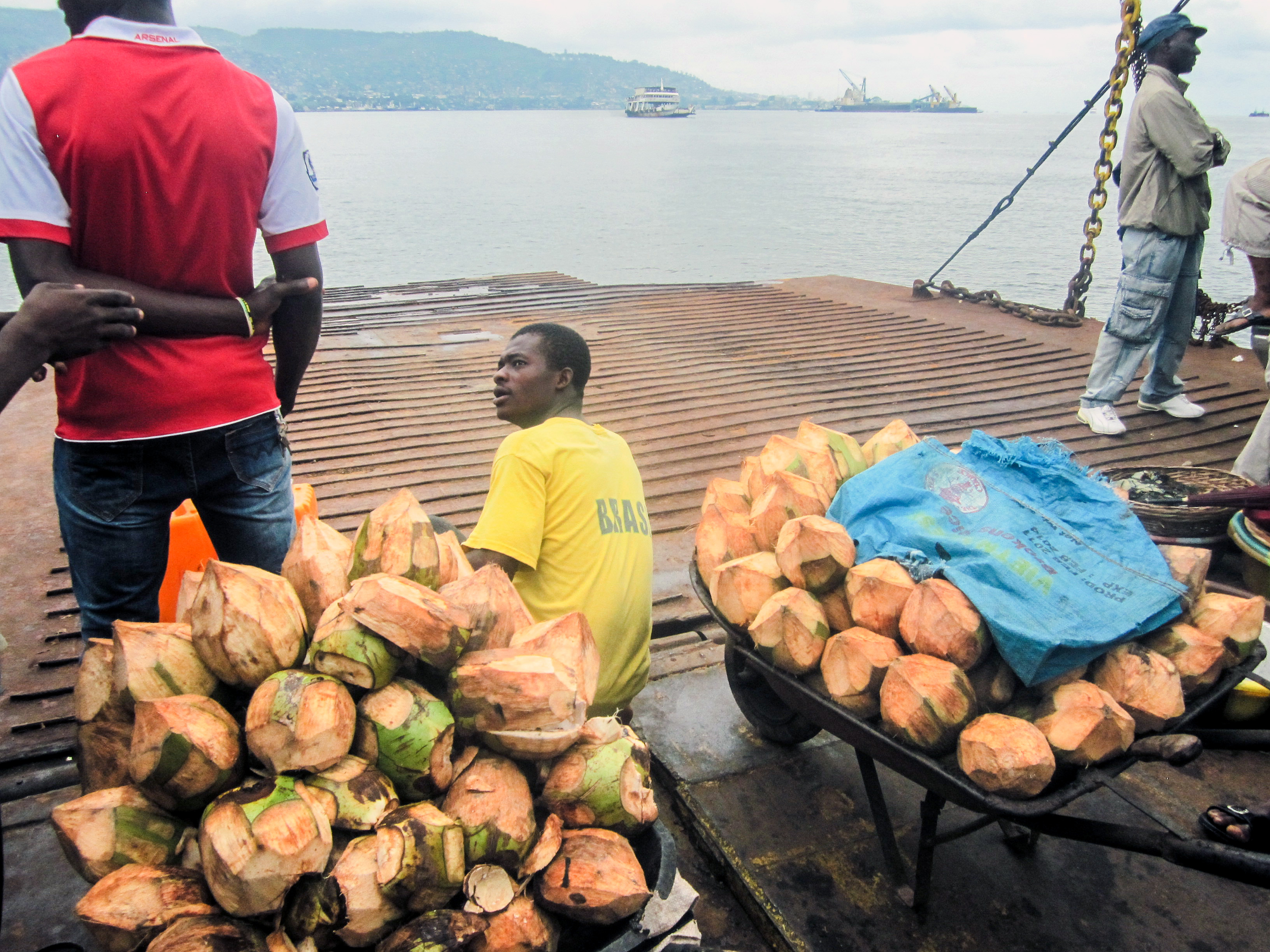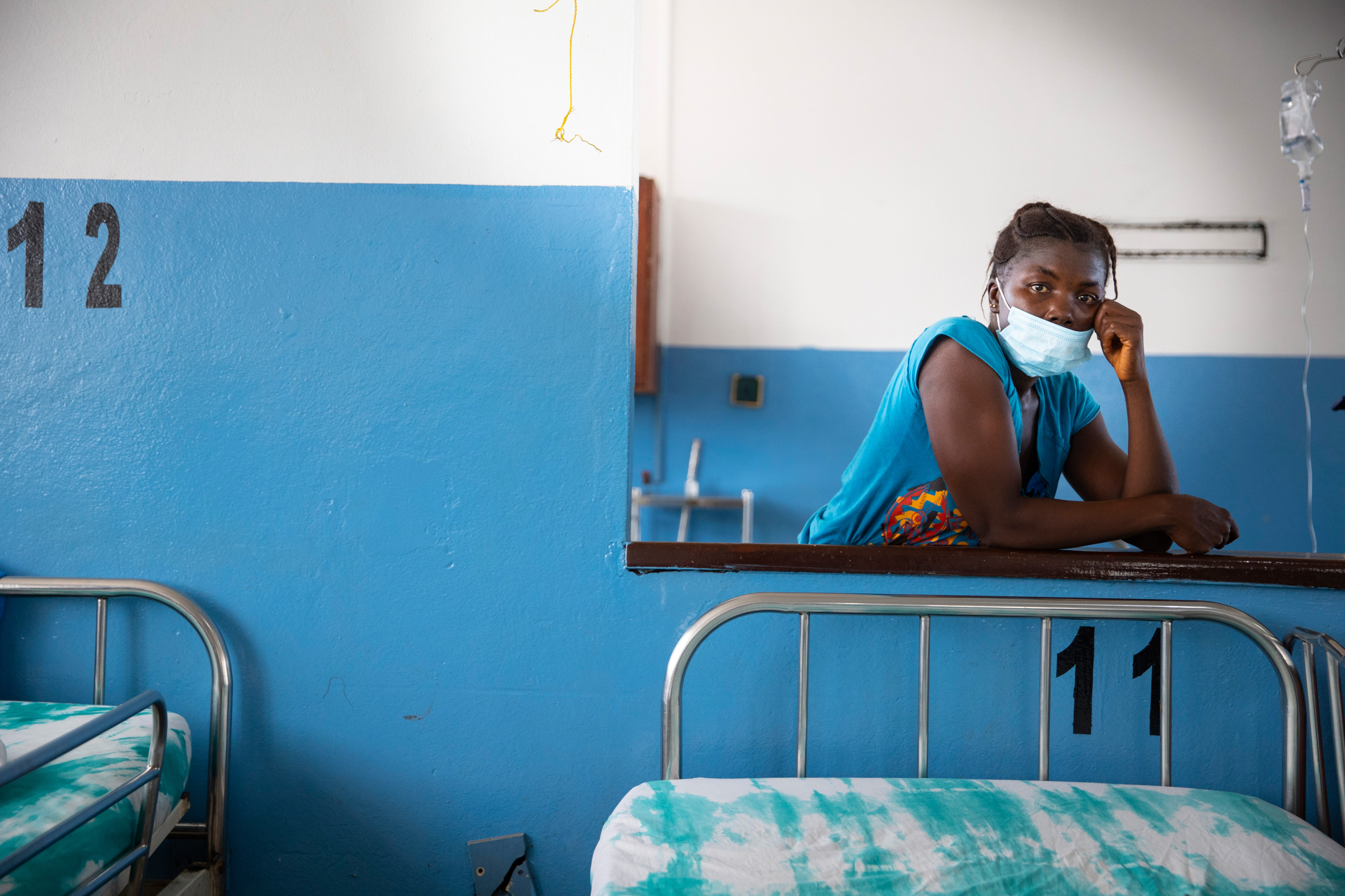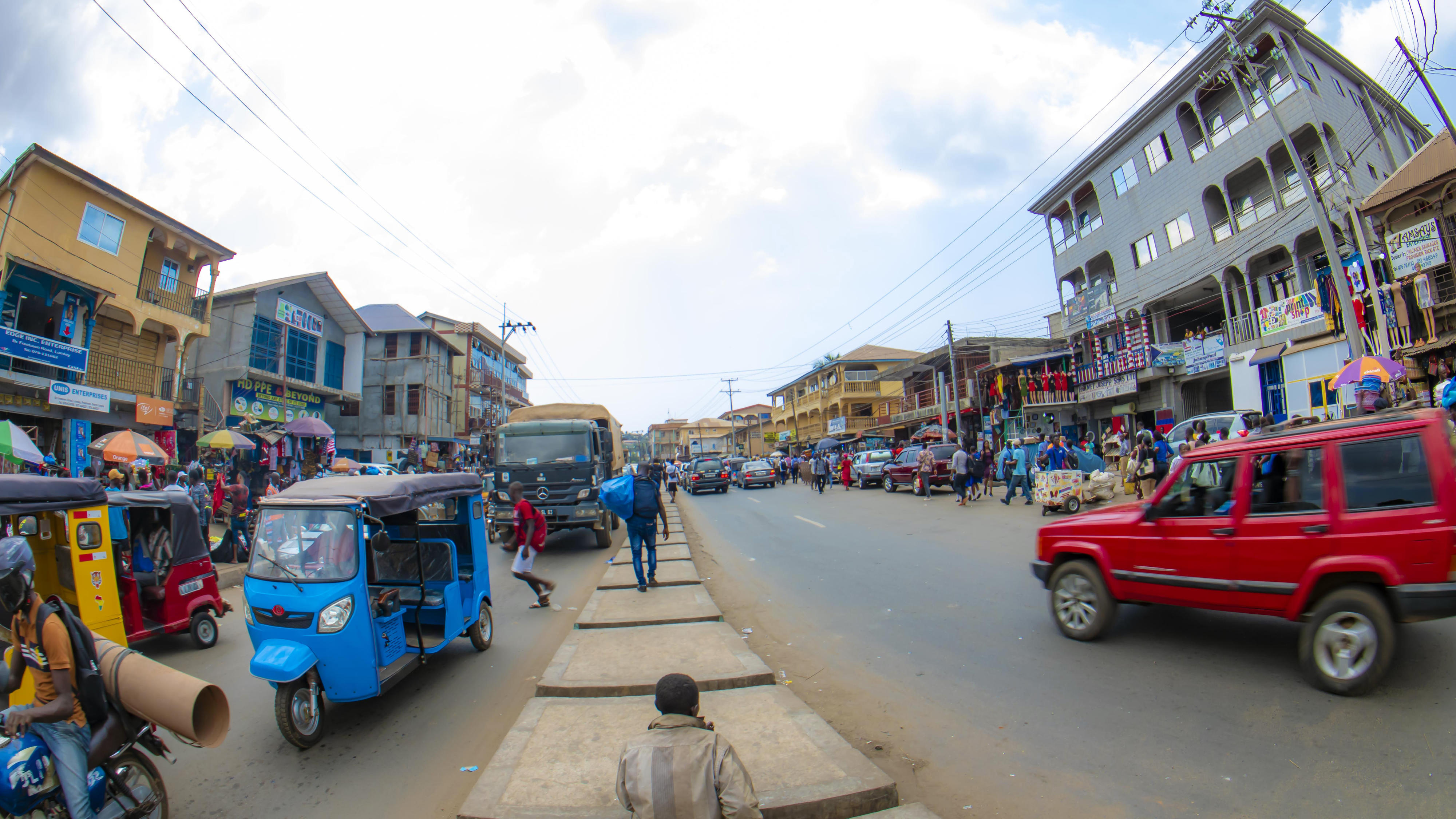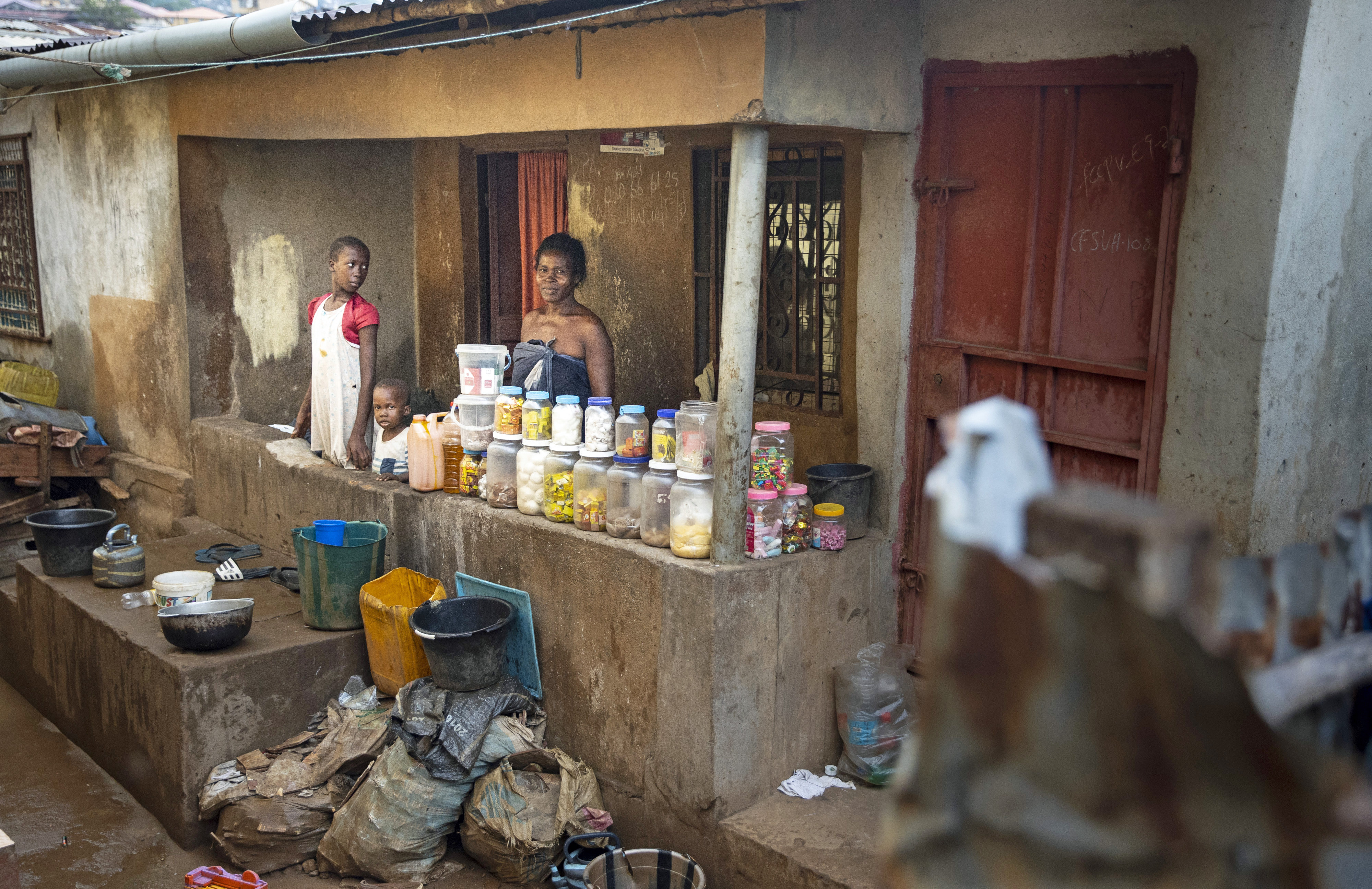View of Freetown, the capital of Sierra Leone
Copyright© Xander Heinl/photothek.net
Sierra Leone
The West African country is generally seen as an excellent example of conflict resolution with international support, and of the successful restoration of governmental and societal structures. President Julius Maada Bio, who has been in office since 2018, has been pursuing development-oriented reform policies which also actively involve civil society. The current development strategy, the Medium Term National Development Plan 2024-2030, is cause for hope. It has produced the “big 5” agenda, with the food security programme Feed Salone (Salone = Sierra Leone) at its centre: the aim here is to strengthen agriculture so that by 2030 the country will have achieved self-sufficiency.
Presidential and parliamentary elections held since the end of the civil war have been judged by international observers to be fair and proper, except for the elections in 2023, which ended in controversy. Talks between the government and the opposition were resumed after the Commonwealth and the Economic Community of West African States (ECOWAS) mediated between the two sides, with a declaration of national unity being signed in October 2023. The declaration resulted, among other things, in the establishment of a cross-party electoral commission and an investigation into all three levels (presidential, parliamentary and municipal) of the 2023 elections. The Commission has submitted its recommendations and a start has been made on implementing them.
It appears, however, that political tensions in the country have not abated. On 26 November 2023, the government reported an attempted coup. The highly challenging societal context, the high level of poverty among the population and a precarious food situation with regularly occurring famines continue to threaten political stability and social peace.
Sierra Leone has been a bilateral partner country for German development cooperation since 2021. Germany’s declared aim is to support the poorest people in particular, especially at a time when others, who have played an important role in this context in the past, are withdrawing their support.
Peace not yet sufficiently secured
Sierra Leone’s recent history has been marked by huge suffering and distress: Between 1991 and 2002, the country experienced one of the most brutal and violent civil wars Africa has seen in recent decades. Tens of thousands were killed or seriously injured, children were abducted and forced into combat, women and girls were subjected to sexual violence, and 60 per cent of the population was displaced. Much of the country’s infrastructure was destroyed.
In 2014, just twelve years after the end of the civil war, an Ebola epidemic broke out in Sierra Leone, with disastrous consequences for the economy and society. The country had not yet fully recovered when the COVID-19 pandemic hit in 2020, putting an additional strain on development. The impacts of Russia’s war of aggression in Ukraine are also making the severe poverty even worse.
The current United Nations Human Development Index ranks Sierra Leone 185th out of 193 countries. More than 20 years after the end of the civil war, peacebuilding structures have still not become sufficiently well established to exclude a descent back into organised mass violence.
German development cooperation with Sierra Leone
Sierra Leone has been a bilateral partner country for German development cooperation since 2021. Germany’s declared aim is to support the poorest people in particular, especially at a time when others, who have played an important role in this context in the past, are withdrawing their support. The focus of cooperation with Sierra Leone is on the following core areas:
- Sustainable economic development, training and employment
Areas of intervention: technical and vocational education and training, private sector and financial sector development
- Health, social protection and population policy
Area of intervention: health, pandemics and One Health
In addition, there is a commitment to cooperate on renewable energy and energy efficiency – access to modern energy services (including improved cookstoves, solar photovoltaic installations).
Germany has been supporting the country’s reconstruction after the civil war since 2010. In order to firmly establish peace and get young people into employment quickly, the German Development Ministry (BMZ) is particularly involved in activities to do with vocational education, promoting the private sector and rural infrastructure.
More than 50,000 young people have meanwhile been trained in a wide range of vocational skills and have been able to increase their incomes. Around 1,000 hectares of land used to cultivate rice have been rehabilitated and are now contributing to food security. Support has also been provided to assist with the construction of deep wells, rice mills and grain silos with solar panels, as well as for the rehabilitation of markets and rural access roads.
At the government negotiations in October 2025, Sierra Leone received commitments of 28.2 million euros in order to continue projects in the aforementioned core areas.
In addition to bilateral cooperation, the BMZ is also supporting a responsible commodities policy and supply chains in West Africa via a regional project. The member states of the Mano River Union – Sierra Leone, Guinea, Liberia and Côte d’Ivoire – receive support with the aim of helping to increase government revenue from natural resources, improve working and production conditions in the extractive sector, monitor the activities of mining companies more effectively, and increase the transparency of payment flows.
Germany also supports numerous NGOs working in Sierra Leone, in particular in the areas of training and education, health, land rights and the rights of women and girls.
SDG trends for Sierra Leone
- On track or maintaining SDG achievement
- Moderately improving
- Stagnating
- Decreasing
- Trend information unavailable
